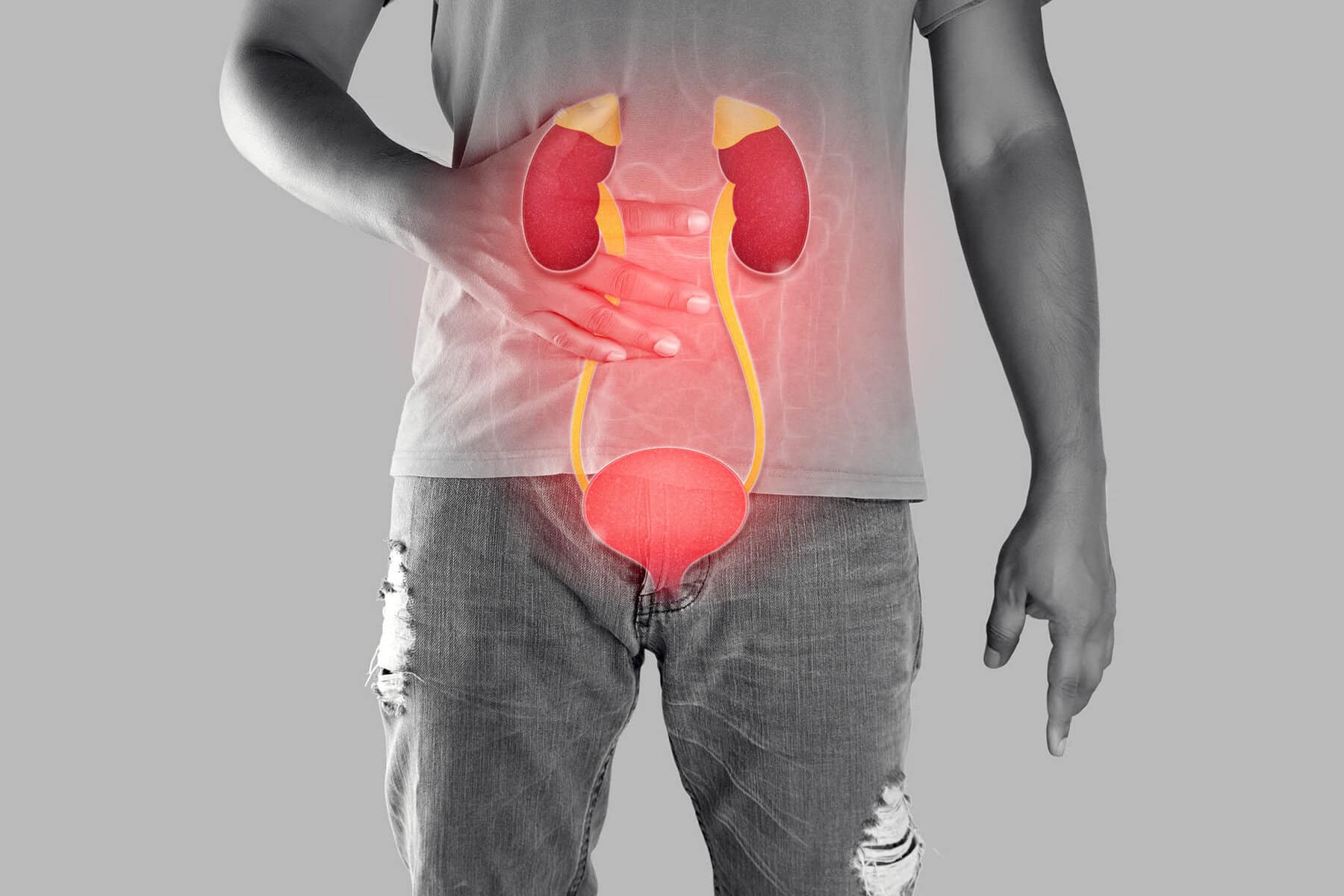Expert Care for Urethral Stricture
Struggling with a urethral stricture? Discover effective diagnosis and treatment options at The Forbury Clinic. Submit an enquiry for a consultation and regain comfort and ease today.

Overview of Urethral Stricture
Urethral stricture is a condition characterised by the narrowing of the urethra, which can cause difficulty in urination and impact overall quality of life. This narrowing can result from various causes, including inflammation, injury, or infection, leading to symptoms such as a weak urine stream, painful urination, and frequent urinary tract infections. Addressing urethral stricture promptly is crucial to prevent complications and improve urinary function. At The Forbury Clinic, we specialise in diagnosing and treating urethral stricture with a patient-centred approach. Our experienced team uses advanced diagnostic tools and tailored treatment plans to provide effective solutions, helping you achieve optimal urinary health and well-being.


What is Urethral Stricture?
Urethral stricture is a condition where the urethra, the tube that carries urine from the bladder out of the body, becomes narrowed due to scar tissue. This narrowing restricts the flow of urine, causing a range of urinary symptoms. Common symptoms of urethral stricture include a weak or interrupted urine stream, difficulty starting urination, frequent urination, painful urination, and a sense of incomplete bladder emptying. In severe cases, it can lead to urinary retention, where the bladder cannot be fully emptied, increasing the risk of infections and bladder damage. Understanding the nature and severity of the stricture is essential for effective treatment and management.
Causes and Risk Factors
Urethral stricture can be caused by various factors, and understanding these can help in effective diagnosis and management:
Trauma or Injury:
Injuries to the urethra from accidents, medical procedures, or catheter use can lead to scar tissue formation.
Infections:
Recurrent urinary tract infections (UTIs) or sexually transmitted infections (STIs) can cause inflammation and scarring of the urethra.
Surgery:
Previous surgeries involving the urinary tract or prostate can increase the risk of developing a stricture.
Inflammatory Conditions:
Conditions like lichen sclerosus or other chronic inflammatory diseases can lead to urethral strictures.
Radiation Therapy:
Radiation treatment for prostate or pelvic cancers can cause scarring and narrowing of the urethra.
Congenital Abnormalities:
Some individuals are born with a naturally narrowed urethra.
Risk Factors
Gender:
Men are more likely to develop urethral strictures due to their longer urethra.
Age:
Older adults have a higher risk due to the increased likelihood of past surgeries, infections, or trauma.
Medical History:
A history of UTIs, STIs, or pelvic surgeries increases the risk.
Prolonged Catheter Use:
Long-term use of urinary catheters can cause irritation and scarring.
Diagnosis
Diagnosing urethral stricture at The Forbury Clinic involves a thorough evaluation to determine the location, length, and severity of the stricture. Our specialists use a combination of advanced diagnostic tools and personalised assessments, including:
- Medical History and Physical Examination: A detailed discussion of symptoms and medical history, followed by a physical examination to assess the urethra and bladder.
- Urine Tests: Urinalysis to check for signs of infection or other abnormalities.
- Uroflowmetry: A test that measures the flow rate of urine to detect any obstruction.
- Retrograde Urethrogram (RUG): An X-ray procedure that involves injecting a contrast dye into the urethra to visualise the stricture.
- Cystoscopy: A procedure where a thin tube with a camera is inserted into the urethra to inspect the urethra and bladder for strictures.
- Ultrasound: Imaging tests to provide detailed images of the urinary tract and identify any structural abnormalities.
These diagnostic methods allow our team to accurately identify the cause and severity of urethral stricture and develop a tailored treatment plan.

Treatment for Urethral Stricture
At The Forbury Clinic, we offer a comprehensive range of treatment options for urethral stricture, tailored to the specific needs of each patient. Our approach combines the latest medical advancements with compassionate, patient-centred care:
Optilume Procedure:
As part of our commitment to offering the latest advancements in urology, The Forbury Clinic offers the Optilume Procedure for patients with recurrent urethral strictures. This minimally invasive treatment uses a drug-coated balloon to dilate the urethra while delivering a targeted medication to prevent scar tissue from reforming. The procedure is performed as a day case and is particularly beneficial for those who have not found lasting relief with traditional treatments. It provides an effective, low-recovery option, significantly reducing the risk of recurrence. Learn more on our dedicated Optilume Procedure page.
Dilation:
Gradually stretching the urethra using a series of increasing dilators to widen the stricture. This procedure can provide temporary relief and may need to be repeated periodically.
Urethrotomy:
A minimally invasive procedure where a small incision is made in the stricture using a special endoscope to widen the urethra.
Urethroplasty:
Surgical reconstruction of the urethra, often considered the gold standard for treating longer or more complex strictures. This procedure involves removing the scarred section and reconstructing the urethra, which can provide a more permanent solution.
Catheterization:
In cases of severe urinary retention, a catheter may be temporarily inserted to relieve obstruction and drain the bladder.
Anti-Inflammatory Medications:
Prescribed to reduce inflammation and prevent further scarring in mild cases.
Our multidisciplinary team ensures that each patient receives the most appropriate and effective treatment, enhancing their quality of life and managing their condition with precision and care.
Managing Urethral Stricture
Managing urethral stricture involves a combination of medical treatments and lifestyle adjustments to control symptoms and improve overall health. At The Forbury Clinic, we provide comprehensive care and guidance to help manage this condition:
Hydration:
Drinking plenty of water to keep the urinary tract flushed and reduce the risk of infections.
Avoiding Irritants:
Steering clear of products that can irritate the urinary tract, such as certain soaps and chemicals.
Regular Monitoring:
Keeping track of symptoms and seeking prompt medical attention if any issues arise.
Following Treatment Plans:
Adhering to prescribed treatments and attending follow-up appointments to monitor progress.
Healthy Lifestyle:
Maintaining a balanced diet and regular exercise to support overall urinary health.
These management strategies aim to complement medical treatments and provide a holistic approach to improving symptoms and overall well-being.
Complications
While urethral stricture can often be managed effectively, untreated strictures can lead to several complications that may affect overall health:
- Urinary Retention: Inability to fully empty the bladder, leading to discomfort and increased risk of infections.
- Recurrent UTIs: Frequent infections due to incomplete bladder emptying.
- Bladder Damage: Chronic retention can cause bladder distension and damage.
- Kidney Damage: Severe cases can lead to back pressure on the kidneys, potentially causing kidney damage.
Prognosis
The prognosis for urethral stricture largely depends on the severity and location of the stricture and the effectiveness of the treatment plan. With timely diagnosis and appropriate treatment, many individuals can achieve significant improvements in symptoms and overall health. Regular follow-ups and ongoing management are crucial to prevent complications and maintain urinary health. At The Forbury Clinic, we are dedicated to guiding our patients through their treatment journey with comprehensive care and support, ensuring the best possible outcomes and a higher quality of life.


Why Choose The Forbury Clinic?
Choosing The Forbury Clinic for your urethral stricture treatment ensures you receive exceptional care from a team of experienced specialists. Our clinic is known for its expert medical staff who are dedicated to diagnosing and treating urological conditions with precision and compassion. We use state-of-the-art diagnostic tools and the latest medical advancements to provide accurate diagnoses and innovative treatments tailored to your specific needs. Our patient-centred approach prioritises your comfort, privacy, and overall well-being, offering comprehensive support throughout your treatment journey. At The Forbury Clinic, you can trust that you are in capable hands, with a dedicated team committed to helping you achieve optimal health and a better quality of life.